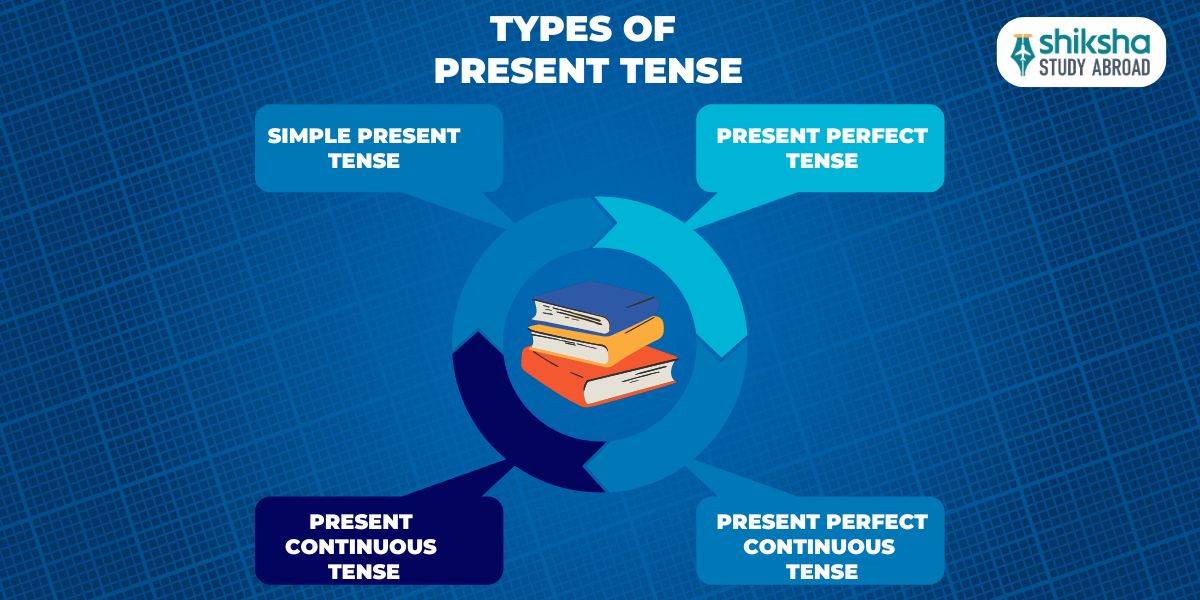The present perfect tense describes recent actions. These actions still impact now. It can be tricky for students. Many make grammar mistakes. Practice the structure regularly. This will help you succeed in exams.
- What is Present Perfect Tense?
- Present Perfect Tense Structure
- Use of Present Perfect Tense
- Common Mistakes Students Make in the Present Perfect Tense Sentences
What is Present Perfect Tense?
Present perfect tense is a form of Present tense that is used to represent an action that just happened in the recent past and is still directly related to the present. We have mentioned a definition that will help you to understand more easily.
Present Perfect Tense Definition
According to the Cambridge Dictionary, the definition of Present perfect tense is “The tense you use to talk about actions or events that happen in both the past and the present”.
Examples of Present Perfect Tense
- Positive- I have come a long way.
- Negative- I have not come a long way.
- Interrogative- Have I come a long way?
- Interrogative Negative- Haven’t I come a long way?
Present Perfect Tense Structure
Here is sentence structure or formula of the Present Perfect Tense.
- S + have or has + past participle + obj
- S + have or has + not + past participle + obj
- Have or has + s + past participle + obj
- Have or has + s + not + past participle + obj
Predict your IELTS, TOEFL, and PTE in just 4 steps!
Use of Present Perfect Tense
Present Perfect Tense is used to describe an action that happened at an unspecified time in the past but has a strong connection to the present. Use this tense when the result of the action is more important than when it happened.
Common Situations and Examples
| Situation | How it Works | Example Sentence |
|---|---|---|
| Past Action, Present Result | The action is over, but the effect stays with you today. | I have completed my graduation. (I am a graduate now) |
| Life Experiences | Talking about things you have done at some point in your life. | I have visited Japan twice. (It is part of my experience) |
| Recent Actions | Actions that happened very recently (often used with 'just'). | I have just finished reading that book. (I am done with it now) |
| Unfinished Time | Actions happening in a time period that isn't over yet. | I have eaten pizza this week. (The week is still going on) |
Quick Grammar Rule
To form a sentence, simply use: Subject + Has/Have + Past Participle (V3)
-
Have: Used with I, You, We, They.
-
Has: Used with He, She, It.
Importance of Present Perfect Tense in Standardized Exams?
Duolingo English Test, PTE Exam, and TOEFL Exam are some of the well known English proficiency tests. Tests assess your Listening, writing, and speaking skills. Knowledge of Present Perfect Tense structure will help you in sentence formation. In these tests, you may need to explain a life experience that happened in the past. Also, how has it changed your life? There, you need to use the Present perfect tense.
Present Perfect Tense Examples:
- Beginner Level- I have eaten.
- Intermediate Level- I have eaten too much cake.
- Advanced Level- I have eaten too much cake and now I am facing issues.
Common Mistakes Students Make in the Present Perfect Tense Sentences
No Knowledge About Past Participle- Students should avoid this common mistake. They do not use proper verb form and make the sentences incorrect.
- I have gone (Correct).
- I have went there. (Incorrect).
Subject-verb agreement errors- Mostly, students do not know the correct “use of Has and Have”. They use “has” with “I, We, and You.
- Ram has played football in the morning, so he is resting now. (Correct)
- We has played football in the morning, so we are resting now. (Incorrect)
Not Knowing the Difference between Different Forms of Tenses- It looks like a very common mistake, but this can lead you to blunders, and you can lose your score in the IELTS exam.
- I have just met Rohit Sharma. (Correct)
- I have met Rohit Sharma last week. (Incorrect)
Also Read:
Structure of present perfect tense is: Subject + Has/Have + Past Participle.
- Has: for singular subjects.
- Have: for plural subjects.
It links past actions to present moment. Rules are simple.
University of Lancashire accepts country-specific qualifications from overseas applicants. Indian candidates who wish to pursue their higher studies from the university, must meet the University of Lancashire admission requirements for Indian students listed below:
Undergraduate Requirements:
- Higher secondary school certificate
- Overall score of 60% (80% for excellence scholarship)
- 60% - 70% in Standard XII English (IELTS 6.0 equivalent)
Graduate Requirements:
- Bachelor's or Master's degree in relevant field;
- Overall score of 58% in bachelor's degree (80% for excellence scholarship) or 55% in master's degree
- 65% - 75% in Standard XII English (IELTS 6.5 equivalent)
Pick your stage and get free guidance from counsellors who've helped thousands get into top universities.
 Starting research
Starting research Shortlisting colleges
Shortlisting colleges Exam preparation
Exam preparation SOP/LOR writing
SOP/LOR writing Scholarship & finance
Scholarship & finance Visa application
Visa application



Simple present tense examples are
Use base verb. Adding "s" or "es" for third person singular subjects (He/She/It).